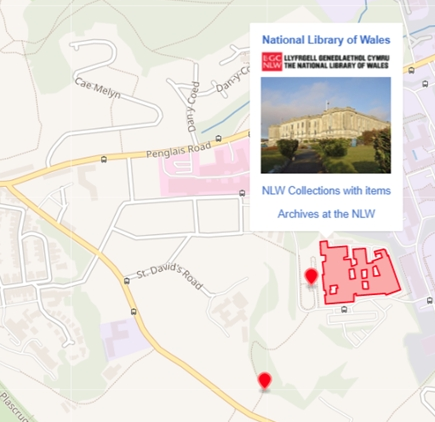Introduction: This blog post describes how the National Library of Wales makes us of Wikidata for enriching their collections. It especially showcases new features for visualizing items on a map, including a clustering service, the support of polygons and multipolygons. It also shows how polygons like the shapes of buildings can be imported from OpenStreetMap into Wikidata, which is a great example for re-using already existing information.
Introduction: This article proposes establishing a good collaboration between FactMiners and the Transkribus project that will help the Transkribus team to evolve the “sustainable virtuous” ecosystem they described as a Transcription & Recognition Platform — a Social Machine for Job Creation & Skill Development in the 21st Century!
Introduction: This blog post not only presents a technique of measuring poetic meter and using it to plot distances between poets, but it also provides an insight into the theoretical and empirical process leading to those results.
Introduction: Apart from its buoyant conclusion that authorship attribution methods are rather robust to noise (transcription errors) introduced by optical character recognition and handwritten text recognition, this article also offers a comprehensive read on the application of sophisticated computational techniques for testing and validation in a data curation process.
Introduction: This is a well-structured account of a seminar session on data management held in Munich. It introduces many topics which humanists have to deal with during a research process.
Introduction: The rperseus package provides classicists and other people interested in ancient philology and exegesis with corpora of texts from the ancient world (based on the Perseus Digital Library), combined with a toolkit designed to compare passages and selected words with parallels where the same expressions or words occur.
Introduction: This very complete tutorial by Patrick Smyth will help digital humanists or any interested person on digital technologies applied to projects how to make data more accessible to users through APIs (Application Programming Interfaces). After explaining the basics about APIs and databases, an API is built and put into practice. Python 3 and the Flask are the web frameworks used for developing this API.
Introduction: This article explains the concept, the uses and the procedural steps of text mining. It further provides information regarding available teaching courses and encourages readers to use the OpenMinTeD platform for the purpose.
Introduction: Processing XML flows has sometimes been a complicated affair traditionally, and XProc was designed to standardise and simplify the process by using declarative XML pipelines to manage operations. This blog post by Gioele Barabucci presents conclusions from a meeting in late 2017 of the XProc 3.0 working group, exploring the latest emerging version of the standard and the kinds of challenges it will overcome.
Introduction: This blog post presents “TEI Simple”, a framework developed to ensure a simpler interaction between TEI and other formats, and to enable easier customization.





